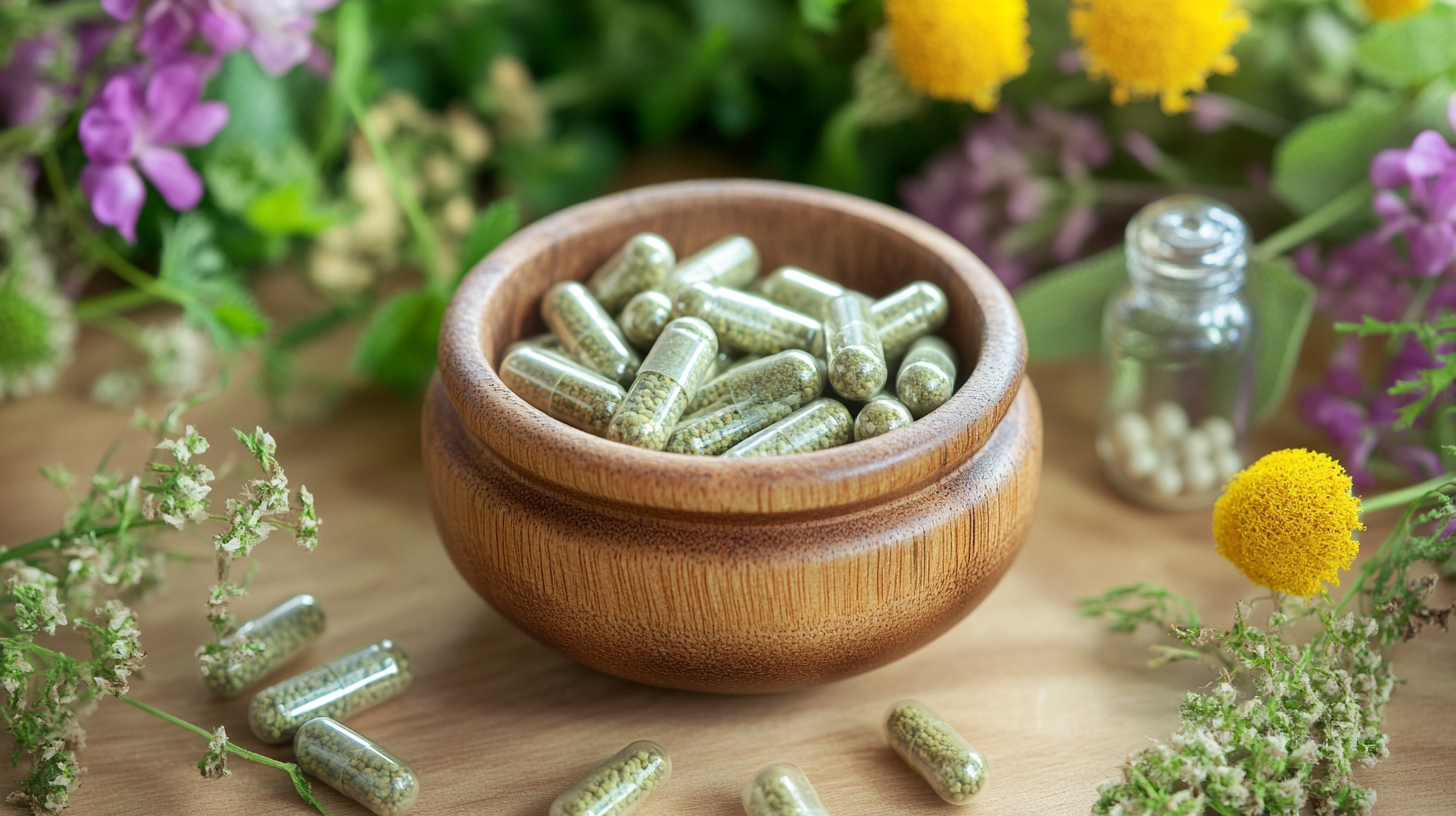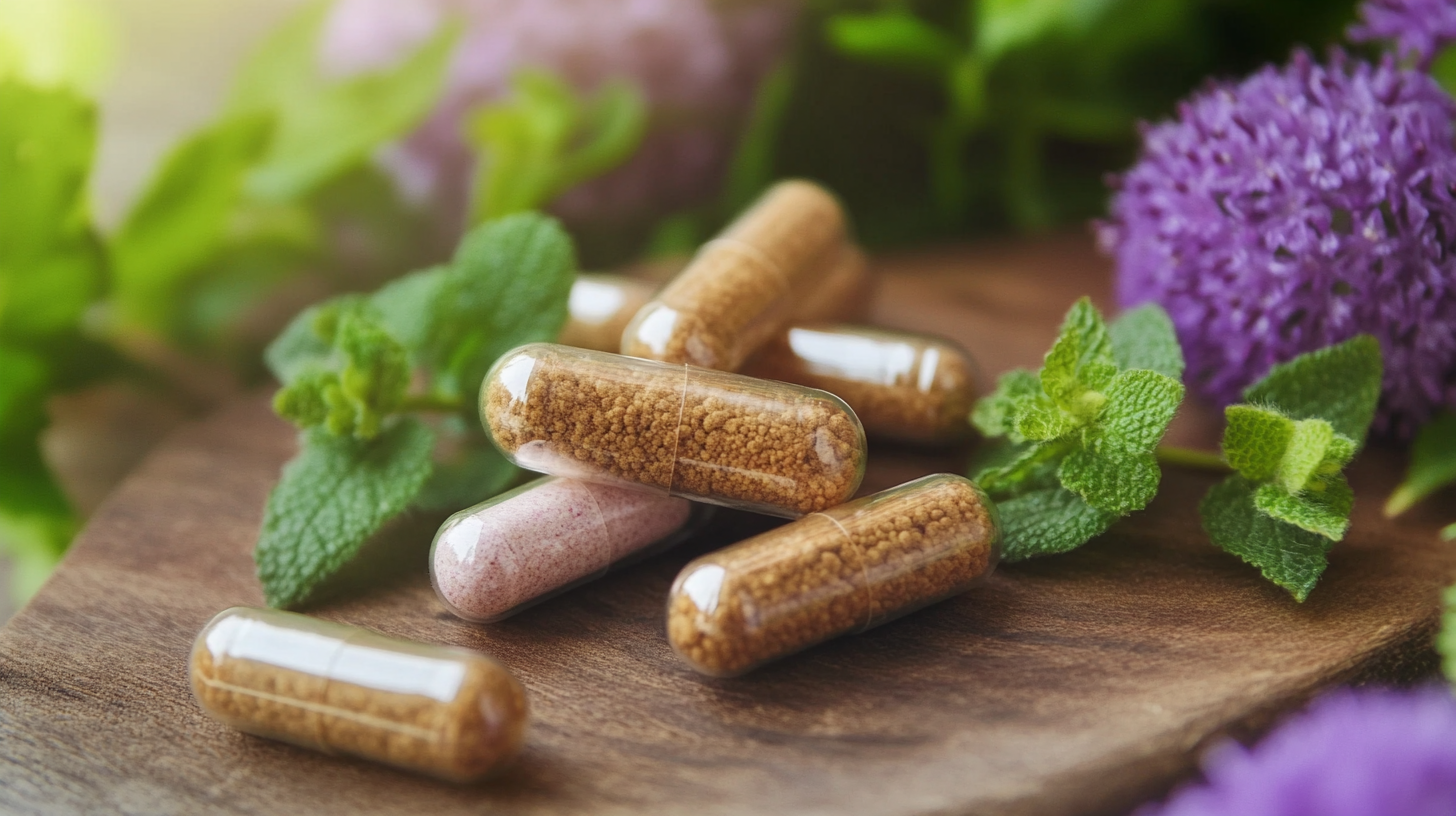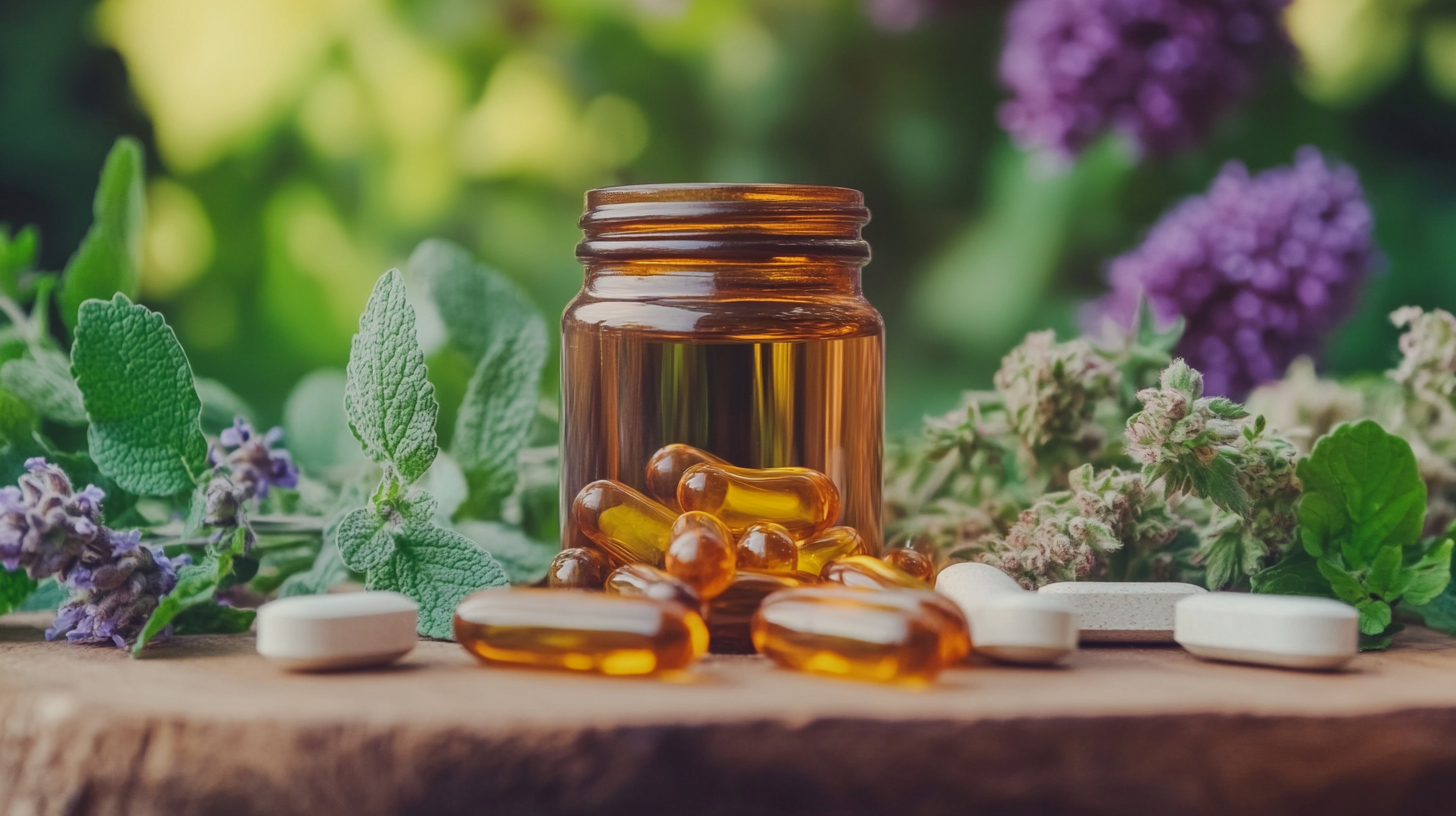50% Response rate
Ultimate Guide to Choosing the Best Herbal Supplements for Your Health
In recent years, the demand for Herbal Supplements has surged, with the global herbal supplement market projected to reach USD 150 billion by 2028, reflecting a compound annual growth rate (CAGR) of 8.5% from 2021, according to a report by Grand View Research. This growing inclination towards natural remedies is attributed to an increasing awareness of their potential health benefits, alongside a shift toward preventive healthcare. Studies indicate that over 70% of consumers are now seeking herbal alternatives to address health issues ranging from stress relief to improved digestion. With an overwhelming array of products flooding the market, making informed choices becomes essential. This ultimate guide aims to equip you with the knowledge needed to select the best herbal supplements tailored to your health needs, ensuring you can navigate this expansive landscape with confidence and clarity.

Importance of Herbal Supplements in Promoting Overall Health
 Herbal supplements have gained significant attention in recent years, becoming a pivotal part of many individuals' health regimens. According to a report by the National Center for Complementary and Integrative Health, approximately 20% of adults in the United States used herbal supplements in 2021, reflecting a growing trend towards natural remedies for wellness. These products, derived from various plants, have been utilized for centuries in traditional medicine systems around the world and are recognized for their potential role in promoting overall health.
Herbal supplements have gained significant attention in recent years, becoming a pivotal part of many individuals' health regimens. According to a report by the National Center for Complementary and Integrative Health, approximately 20% of adults in the United States used herbal supplements in 2021, reflecting a growing trend towards natural remedies for wellness. These products, derived from various plants, have been utilized for centuries in traditional medicine systems around the world and are recognized for their potential role in promoting overall health.
Research highlights the benefits of several popular herbal supplements. For instance, a study published in the Journal of Nutrition found that turmeric, the active component of which is curcumin, can significantly reduce inflammation and improve joint health. Similarly, echinacea has been shown to bolster the immune system, potentially reducing the severity and duration of colds and flu, as indicated by a systematic review in the Cochrane Database. As more individuals look for alternative methods to optimize their wellbeing, herbal supplements continue to emerge as beneficial allies in the quest for a healthier life.
Key Factors to Consider When Choosing Herbal Supplements
Choosing the right herbal supplements requires careful consideration of several key factors to ensure you are selecting the best options for your health. First and foremost, it's essential to look for products that contain high-quality, pure ingredients. The herbal supplement market has seen a significant rise, with a reported market size of USD 895.0 million in 2023 and a projected growth rate of 10.6% through 2030. This expansion emphasizes the need for thorough vetting of products to avoid counterfeit or adulterated herbs.
When evaluating herbal supplements, also consider sourcing and manufacturing practices. Brands that provide transparency about their sourcing and have third-party testing are more likely to deliver effective and safe products. It's advisable to check for certifications or endorsements from reputable health organizations to bolster your confidence in the product.
**Tips:** Always read labels carefully and be wary of supplements with ambiguous ingredient lists. Consulting with a registered dietitian is a great way to get personalized recommendations that align with your health goals. Additionally, staying updated on the latest industry reports can provide insights into emerging trends and validated options in herbal supplementation, ensuring you make informed decisions for your wellness journey.
Top 5 Trusted Chinese Manufacturers of Herbal Products
When it comes to selecting herbal supplements for your health, quality is paramount. Many consumers may not realize that the manufacturing origin can significantly impact the efficacy and safety of these products. Among the world's leading producers, Chinese manufacturers have established a reputation for their adherence to traditional practices while incorporating modern quality controls. Here, we highlight five trusted Chinese herbal product manufacturers known for their commitment to excellence.
One of the industry leaders is Tongrentang, a time-honored company founded in 1669, renowned for its high-quality traditional Chinese medicine. They source their herbs from specific regions known for potency, ensuring that each product meets rigorous standards. Another noteworthy manufacturer is Yaozhen Pharmaceutical, known for its innovative extraction methods that maximize the benefits of herbal ingredients. Additionally, companies like SinoPharm and Guangdong Yipin offer a broad range of supplements backed by extensive research and development initiatives, providing consumers with both safety and efficacy. With such reputable options available from China, you can make informed choices about your herbal supplement needs.

How to Identify Quality Herbal Supplements: A Consumer's Guide
When it comes to choosing herbal supplements for your health, identifying quality products is crucial. With the herbal market projected to grow significantly by 2032, consumers are faced with an overwhelming array of options in various forms, including powders, liquids, gels, and capsules. Each format can potentially influence the effectiveness and absorption of the herbs. Therefore, understanding what constitutes a high-quality herbal supplement is essential for making informed decisions.
To ensure you're selecting the best products, consider a few key factors. First, check for third-party testing and certifications, which can provide assurance regarding the product’s purity and potency. Additionally, research the sourcing of the herbs; reputable brands tend to use high-quality raw materials that meet safety standards. Lastly, be mindful of the applications of the supplements, whether they are intended for medicinal purposes, dietary supplements, or personal care products, as this can affect both quality and effectiveness. By being proactive in distinguishing quality supplements, you can enhance your health with confidence.
Herbal Supplement Quality Ratings
Understanding the Benefits and Risks of Herbal Supplement Use
Understanding herbal supplements involves recognizing both their potential benefits and inherent risks. These natural products are often used for their therapeutic properties, aiming to support various health issues, ranging from stress relief to digestive health. For instance, supplements like peppermint and ginger can aid digestion, while ashwagandha is popular for its adaptogenic properties that help manage stress and anxiety. The allure of these remedies lies in their long history of use within traditional medicine systems and the perception that they offer a natural alternative to synthetic drugs.
However, it’s crucial to approach herbal supplements with caution. Despite their natural origins, these products can pose significant risks, particularly when misused or combined with medications. Variability in potency and purity can lead to adverse reactions, and some herbs may interact negatively with prescription drugs. Furthermore, lack of regulation in the herbal supplement industry means that not all products are created equal—some may contain harmful additives or insufficient levels of the active ingredient. Therefore, individuals considering herbal supplements should consult healthcare professionals and conduct thorough research to ensure safe and effective use.
Ultimate Guide to Choosing the Best Herbal Supplements for Your Health
| Herbal Supplement | Primary Benefits | Potential Risks | Recommended Dosage |
|---|---|---|---|
| Echinacea | Boosts immune function, may reduce cold symptoms | Allergic reactions, digestive issues | 300-500 mg, 3 times daily |
| Ginger | Alleviates nausea, anti-inflammatory properties | Gas, bloating, heartburn | 1-3 grams of fresh ginger daily |
| Turmeric | Anti-inflammatory, antioxidant properties | Stomach upset, digestive issues | 400-600 mg of curcumin 3 times daily |
| Ginseng | Enhances energy, improves cognitive function | Insomnia, headaches | 200-400 mg daily |
| Garlic | Supports heart health, may lower blood pressure | Bad breath, body odor, digestive issues | 600-1200 mg in divided doses |